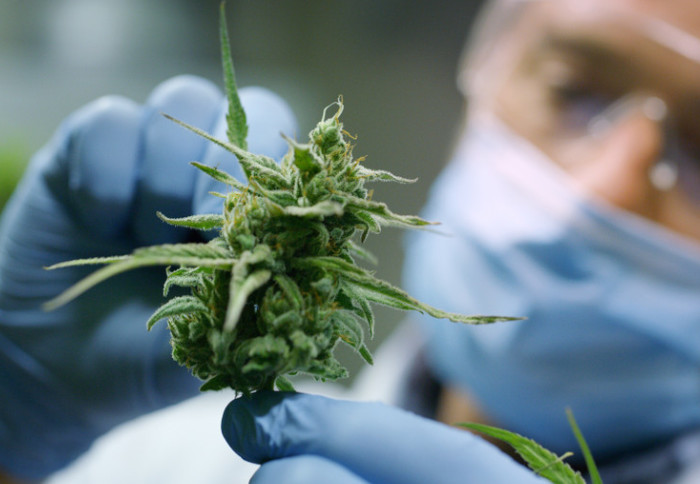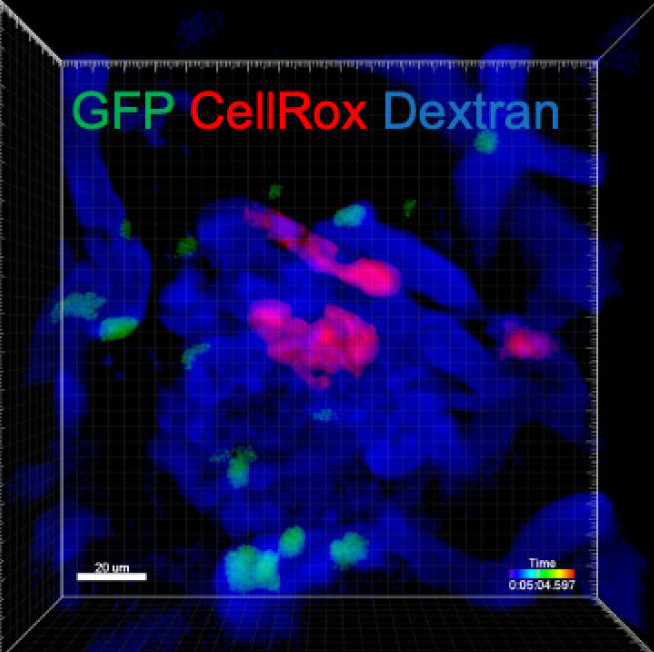
Global S&T Development Trend Analysis Platform of Resources and Environment
| Cannabis pain insights and kidney disease discoveries: News from the College | |
| admin | |
| 2020-10-23 | |
| 发布年 | 2020 |
| 语种 | 英语 |
| 国家 | 英国 |
| 领域 | 资源环境 |
| 正文(英文) | 

Here’s a batch of fresh news and announcements from across Imperial. From insights into how cannabis dulls pain, to discoveries linking immune cells to inflammatory kidney disease, here is some quick-read news from across the College. Cannabis compound blocks pain pathway
A team led by Mikael Sodergren found that rat neurons cultured in the lab could be made less sensitive to capsaicin – the compound which gives chilies their heat. They found CBD blocked pain signalling pathways, with treated nerve cells seeing an influx of calcium and reduced levels of cAMP (a key signalling molecule in pain pathway), compared to untreated neurons. According to the researchers, these findings shine a light on how cannabis compounds directly act on neurons, and may explain the therapeutic effect of CBD in patients with acute and chronic pain. Read the full paper in the Journal of Pain Research: ‘CBD Effects on TRPV1 Signaling Pathways in Cultured DRG Neurons’ Philip Leverhulme Prize
She said: “I am delighted at the news that I was awarded a Leverhulme Prize, particularly because it has been such a difficult year. I plan to use the prize funds to make up for the lost opportunities due to COVID-19 – in terms of travel, collaboration, and research time – for myself and particularly for my PhD students and postdoctoral associates.” Read more on the Leverhulme Trust website. Insights into kidney disease
Researchers have captured real-time images of white blood cell subsets behind an inflammatory kidney disease. Glomerulonephritis (GN) is a condition that can damage the parts of the kidney that filter blood (called glomeruli), and is thought to be caused by overactive immune cells. Using advanced imaging techniques in rats, an Imperial team was able to see different types of immune cells (called monocytes) as they patrol blood vessels monitoring vascular health in the glomeruli. They found that a subtype of the cells, non-classical monocytes, produce signals that instruct other immune cells to attack the lining of the blood vessels, leading to inflammation underpinning GN. The researchers hope their insights could lay the groundwork for more targeted therapies to treat monocyte-driven inflammatory disease. Read the full paper, published in the journal JASN: ‘Live Imaging of Monocyte Subsets in Immune Complex-Mediated Glomerulonephritis Reveals Distinct Phenotypes and Effector Functions’ – Want to be kept up to date on news at Imperial? Sign up for our free quick-read daily e-newsletter, Imperial Today.
Image credits: Top image: HQuality/Shutterstock CBD image: Infinity Time/Shutterstock |
| URL | 查看原文 |
| 来源平台 | Imperial College London |
| 文献类型 | 新闻 |
| 条目标识符 | http://119.78.100.173/C666/handle/2XK7JSWQ/300534 |
| 专题 | 资源环境科学 |
| 推荐引用方式 GB/T 7714 | admin. Cannabis pain insights and kidney disease discoveries: News from the College. 2020. |
| 条目包含的文件 | 条目无相关文件。 | |||||
| 个性服务 |
| 推荐该条目 |
| 保存到收藏夹 |
| 查看访问统计 |
| 导出为Endnote文件 |
| 谷歌学术 |
| 谷歌学术中相似的文章 |
| [admin]的文章 |
| 百度学术 |
| 百度学术中相似的文章 |
| [admin]的文章 |
| 必应学术 |
| 必应学术中相似的文章 |
| [admin]的文章 |
| 相关权益政策 |
| 暂无数据 |
| 收藏/分享 |
除非特别说明,本系统中所有内容都受版权保护,并保留所有权利。
修改评论